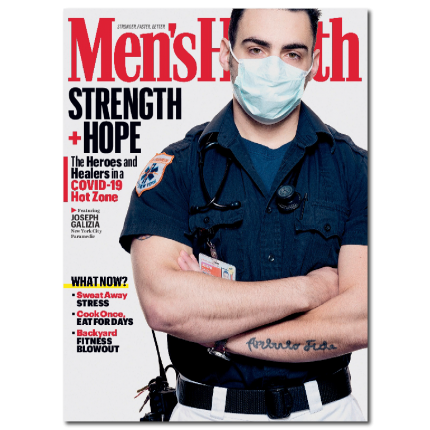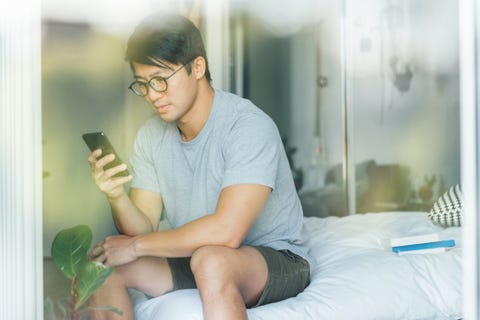Before COVID-19, Vaneet’s dating life was “pretty much non-existent.”
“Asking people out IRL only led to rejection,” the 28-year-old says. “Apps were just a constant stream of being ghosted. It was exhausting, and I practically gave up dating.”
While most of us have been going through unbearable dry spells and deeply missing human touch, Vaneet and other singles have been reveling in the changes coronavirus has brought to the dating scene, including the curtailing of hookup culture for the sake of public health. (Even now, as parts of the country begin to reopen in various phases, we should still proceed with caution when meeting up with strangers.)
“Hookup culture has never been my thing, and while I don’t like one-night-stands, I’ve found it difficult to find anything beyond that,” Vaneet says.
Not anymore. At the beginning of quarantine, Vaneet met someone he liked on Grindr, the popular hookup app for queer men. Men typically use the app to meet up for sex, but now, a lot of guys are using it to chat with each other. Since Vaneet and his partner couldn’t meet up when they started messaging, they’ve had the pleasure of getting to know each other without the pressure of sex on the table—something that almost certainly wouldn’t have happened before COVID-19. Vaneet texts them every day, and they have date nights at least once a week on Zoom. They’ll make a plan to meet up whenever it feels safe; maybe then they’ll have sex, or maybe they’ll keep on getting to know each other.

Men’s Health Magazine
SUBSCRIBE HERE
Since the pandemic began, some people are happy they haven’t had to travel 40 minutes (or more) by train to a bad or mediocre date, and that they’ve saved a bunch of cash instead of spending it on dinner, drinks, and a movie. But the forging of deeper connections with the downfall of hookup culture is one of the biggest reasons people say they’ve appreciated the COVID-19 dating experience.
Before the pandemic, Eden, 28, says she “didn’t like the speed at which dating progressed.” Usually, within minutes of messaging a guy on Hinge, he would ask to meet up.
“I just don’t like that,” she says. “Let me get to know you first.”
Now, she’s been getting to know men better. Their conversations are deeper. She talks about her childhood, her past romantic experiences, and what she’s looking for in a relationship.
These are important topics for potential partners to discuss, and quarantine naturally brings it out of us, according to Shadeen Francis, LMFT.
“Superficial conversations are likely not going to be enough for a ‘quarantine bae,’ as it is hard to build or maintain a long-distance connection without vulnerable communication,” she says. In other words, if you’re not having meaningful conversations with someone, you’re going to get bored or lose interest. And of course, building a relationship from personal and meaningful conversations leads to a personal and meaningful relationship.

Oscar WongGetty Images
For Gregory, 29, the universal challenge of the past few months has made it refreshingly easy to be vulnerable with people. For the first time in a long time, it’s socially acceptable to reply to “How are you doing?” with “Well, to be honest, not great.”
“Now that we have all gone through the collective trauma of COVID-19, and the more recent Black Lives Matter movement, we’ve been given the opportunity to really examine our biases, and that has made us more vulnerable and more likely to be done with putting up facades,” Gregory says.
Of course, dates can also be fun, he adds: “You can bond over the shared trauma of COVID-19, or scream about how insane the MollyIssa feud is on Insecure, or somewhere in between.”
It’s unclear whether this slowed down process of getting to know another on a more personal and sincere level will continue when the world officially opens up. While we’re incredibly adaptive for our survival, we’re also creatures of habit, Francis says—which is why she predicts many of us will return to our old patterns of behavior.
“As effective as any coping or survival strategy might have been, if folks do not consider it a long-term lifestyle change they are wanting to invest their energy into, then they will return to their regularly scheduled programming,” she says.
Still, that doesn’t have to be the case for everyone. Vaneet is cautiously optimistic about transitioning into dating post-coronavirus, hoping people will be more willing to give him a chance and get to know him on a deeper level.
“I hope the pandemic has stressed the importance of human interaction,” he says. “Maybe people will be more willing to give others a chance and get to know someone more first. And maybe, just maybe, more people will be willing to shoot their shot and see what happens.”
Source: Read Full Article



